Tuesday's White House signing ceremony of normalization agreements between Israel, the UAE and Bahrain was the culmination of a largely covert diplomatic process that has infuriated Palestinians, who branded it a “stab in the back” and outright “abandonment” of their cause.
The event, which had been planned for weeks (albeit with Bahrain as an eleventh-hour addition), helped to create consensus between rival Palestinan factions. All were firmly opposed to normalization, Israel's now suspended plans for West Bank annexation and the U.S peace plan for the region, dubbed the "deal of the century."
5 View gallery
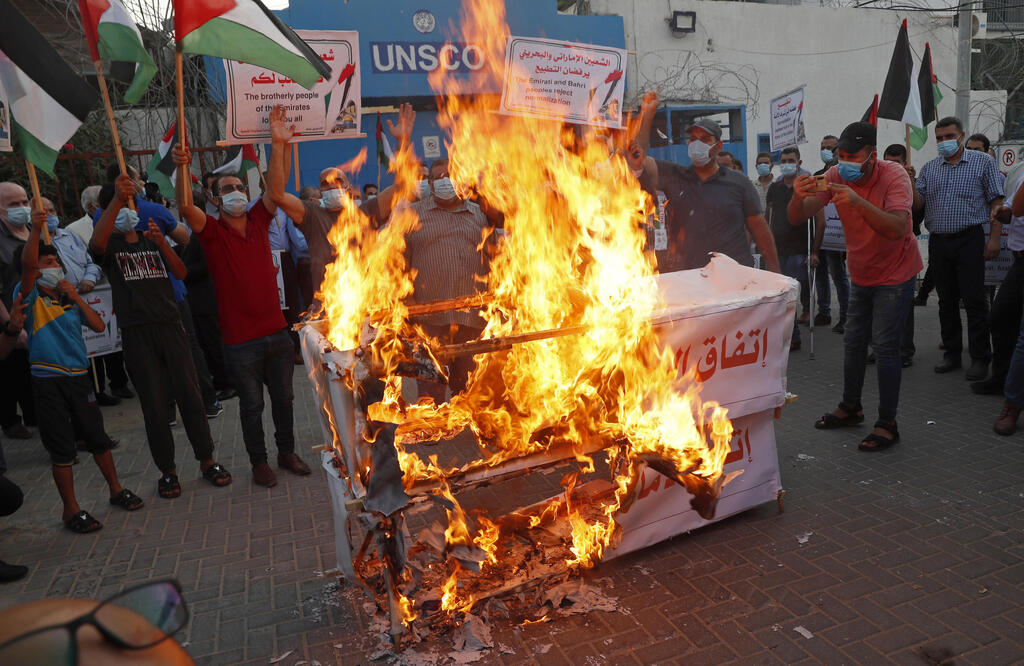

Palestinians burn mock coffins representing the United Arab Emirates and Bahraini normalization agreements with Israel
(Photo: AP)
On September 3, the general secretaries of all Palestinian parties, including Hamas and Islamic Jihad, met via video conference between Beirut and Ramallah, in an effort to forge a united front.
The meeting yielded a joint final statement calling to “end division, achieve reconciliation and form a Palestinian national partnership,” in a sign of unity for the first time in decades.
The statement read in part: “As Palestinians, we believe that we have the right to practice all legitimate forms of resistance. At this point, we’ve agreed on the development and activation of public resistance … to defend our legitimate rights to confront the occupation.”
5 View gallery
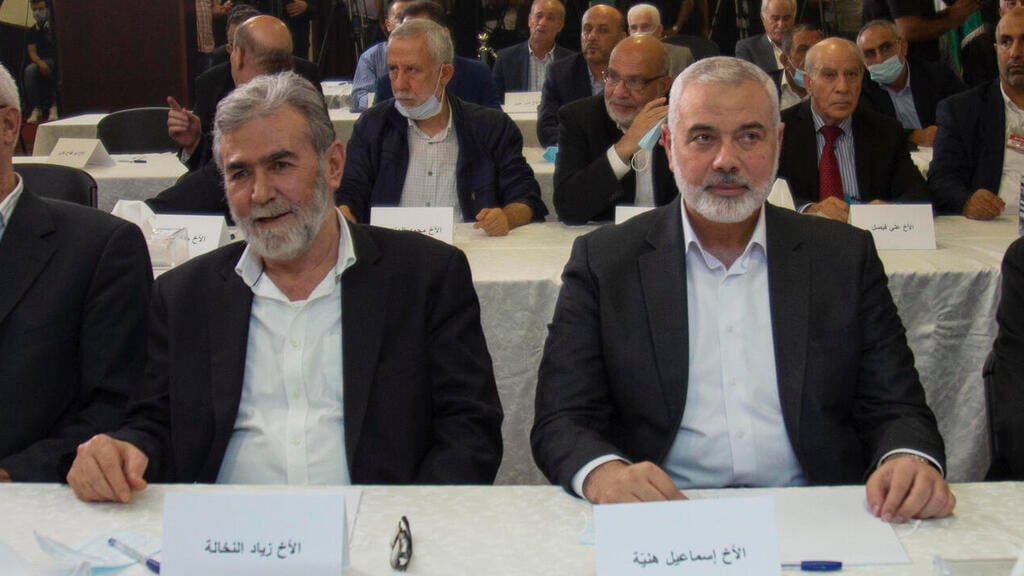

Islamic Jihad leader Ziyad al-Nakhalah, left, and senior Hamas official Ismail Haniyeh meeting in Beirut this month
(Photo: EPA)
Mostafa al-Sawwaf, a Gaza-based political analyst, says that while such actions “augur well, they are still not enough, as we still need a sincere intention from all parties to overcome division. Maybe such joint stances, whether in Gaza or the West Bank, could lead to real action against all the projects threatening the elimination of the Palestinian cause.”
One of the meeting’s most significant outcomes was a call to organize mass protests throughout the Palestinian territories, including in the Gaza Strip.
Representatives of all Palestinian factions and dozens of members of the public protested near the Palestinian Legislative Council headquarters in downtown Gaza City on Tuesday, holding posters that condemned the UAE and Bahraini agreements with Israel and chanting Palestinian resistance songs.
5 View gallery
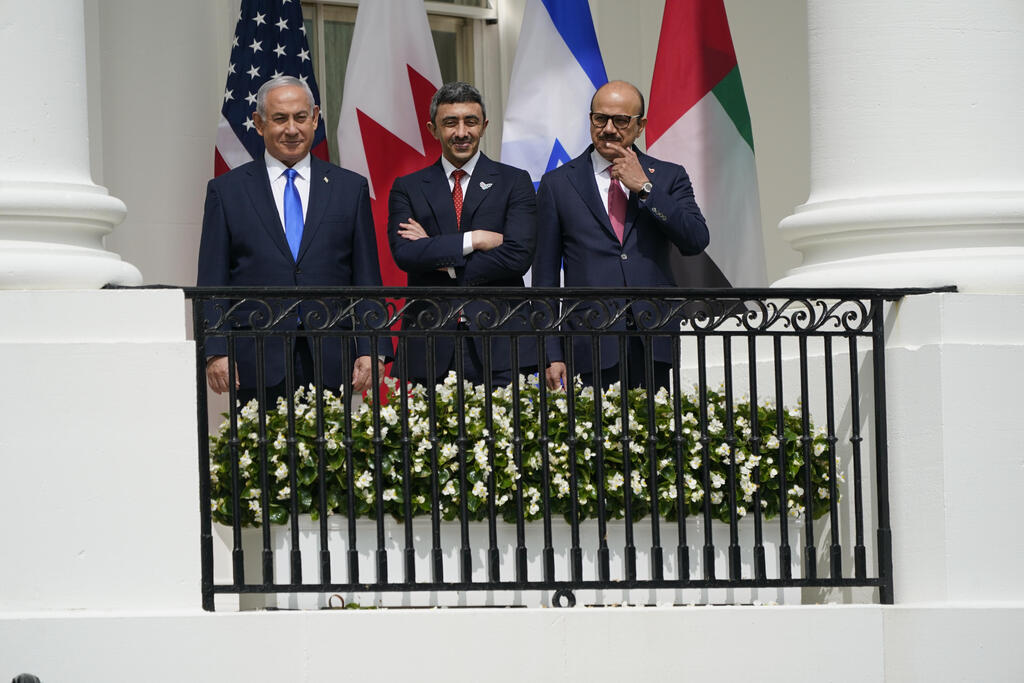

L-R: Prime Minister Benjamin Netanyahu; UAE Foreign Minister Abdullah bin Zayed Al Nahyan and Bahraini Foreign Minister Abdullatif Alzayani at the White House on Tuesday
(Photo: EPA)
Ahmad al-Mudallal, a senior member of Islamic Jihad, says: “Today is a black day for our Palestinian cause and a day of betrayal by the Bahraini and Emirati regimes, who lent legitimacy to the occupation, thinking that in this way they will be protected, whereas the truth is totally the opposite. What can really protect the Arab regimes is their cooperation to support the Palestinian cause against the Israeli occupation.”
He says: “We will not give up, nor will we accept normalization, and our message today is that we are stronger now through our unity on the ground.”
Mohammed al-Brim, a spokesperson for the Popular Resistance Committees, agrees, saying that “this time is different; now we have united political, public and resistance positions, meaning that the [Palestinian] Authority, the resistance and the public are working as an integrated unit.”
5 View gallery
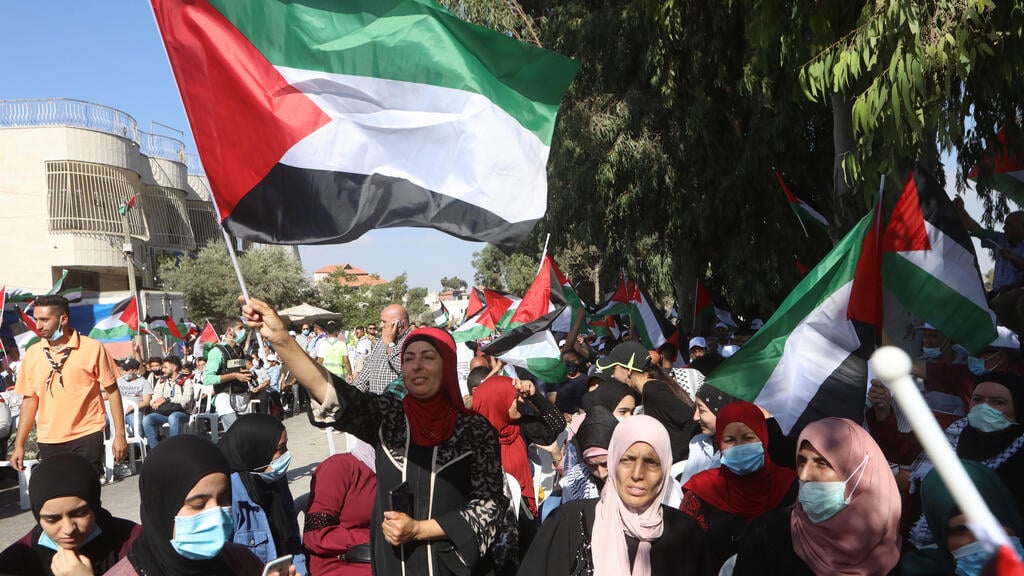

Palestinians protest in Gaza against diplomatic ties between Israel and the United Arab Emirates
(Photo: EPA)
Brim expressed confidence that the “free nations, unlike treasonous regimes, would support the just Palestinian cause.”
While the main themes of the protests consisted of rejecting normalization agreements and condemning the normalizing parties, demonstrators seemed even more outraged at the actions of another player, the Arab League.
Sawwaf said the League, by refusing on September 9 to endorse a Palestinian demand to condemn the Israel-UAE deal, had proved itself to be “worthless.”
5 View gallery
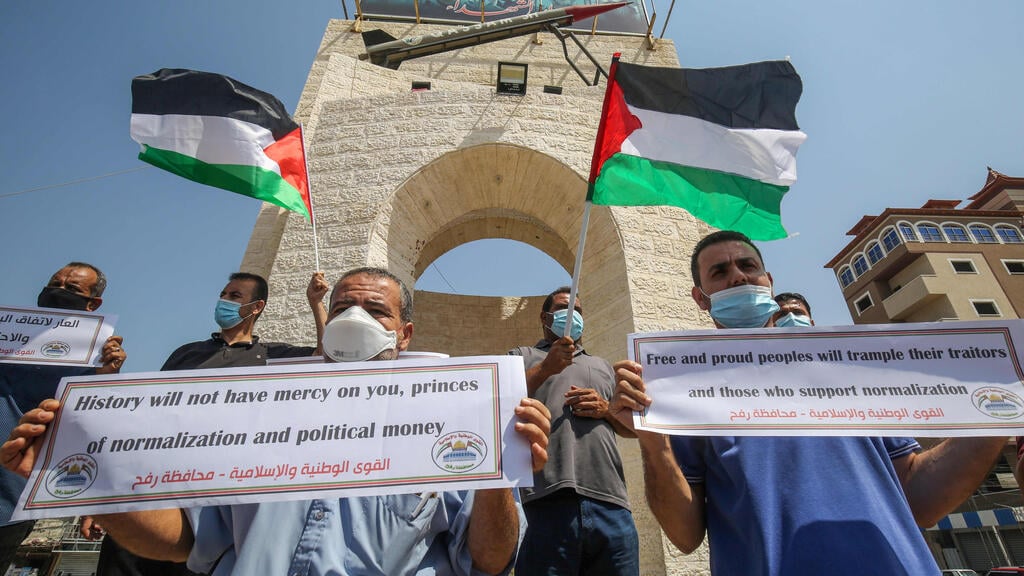

Palestinians carry placards during a protest in Rafah in the southern Gaza Strip, on September 12, 2020, to condemn the normalisation of ties between Israeli and Bahrain
(Photo: AFP)
“For us [Palestinians], the Arab League died a long time ago. Indeed, it no longer serves the Palestinian cause, because those who control the League are the ‘normalizing parties’ who initiate relations with the Israeli occupation, at the expense of the Palestinian people,” he says.
“Personally,” Sawwaf adds, “I believe that it [the League] doesn’t really exist for any Arab country. … What did it do for Arab-Arab conflicts? What did it do for the [water] dispute regarding Egypt, Sudan and Ethiopia? To tell the truth, it [the League] doesn’t really exist at all.”

